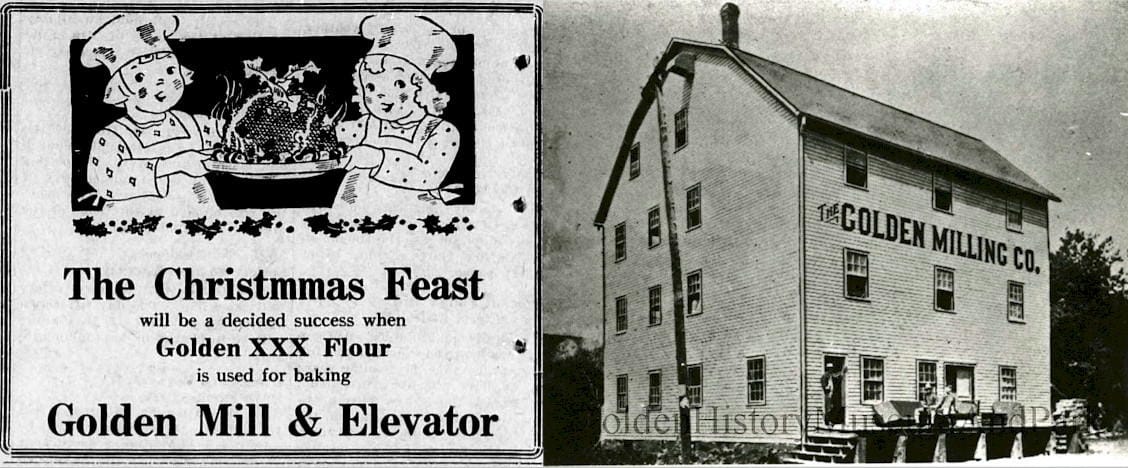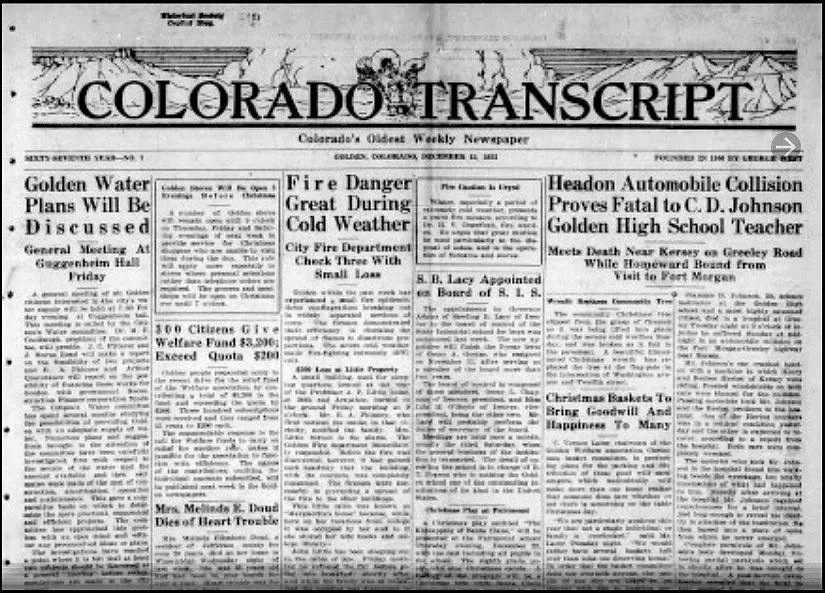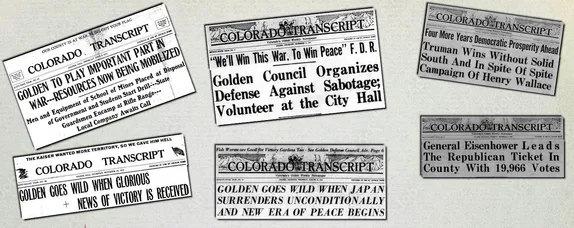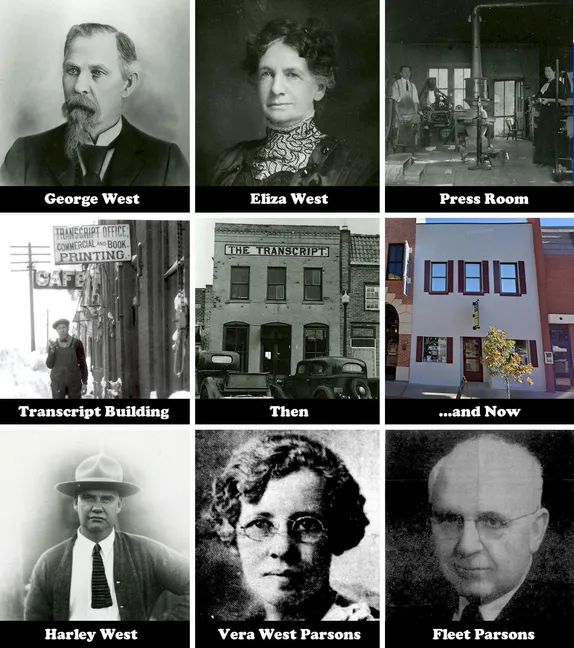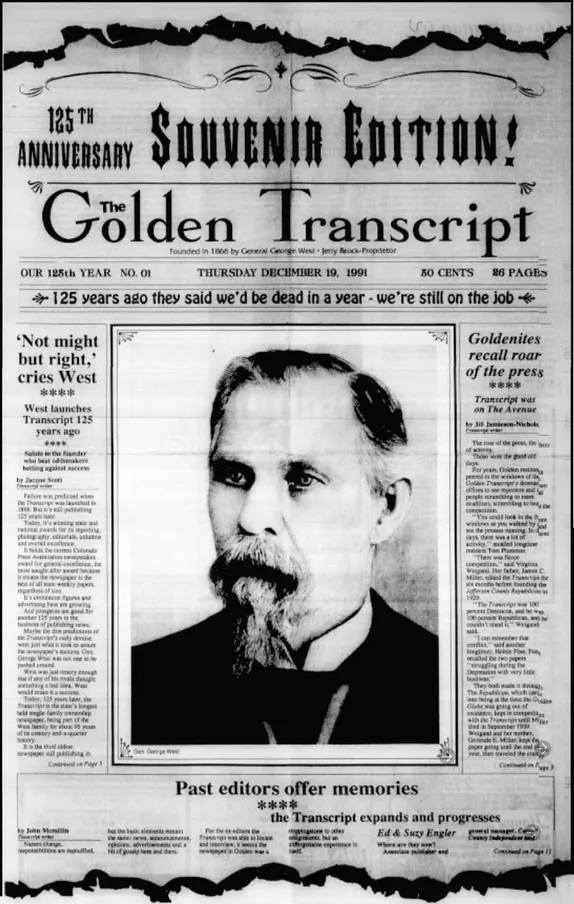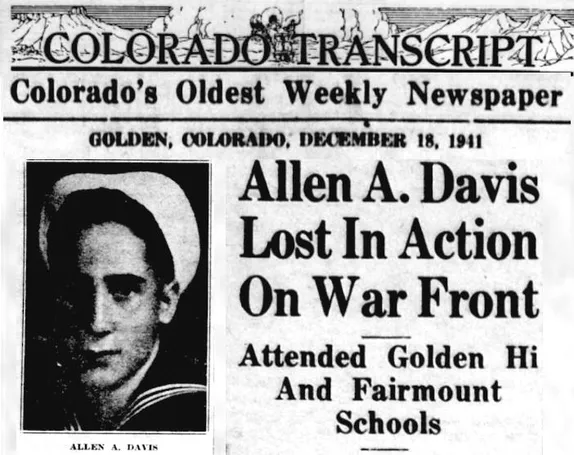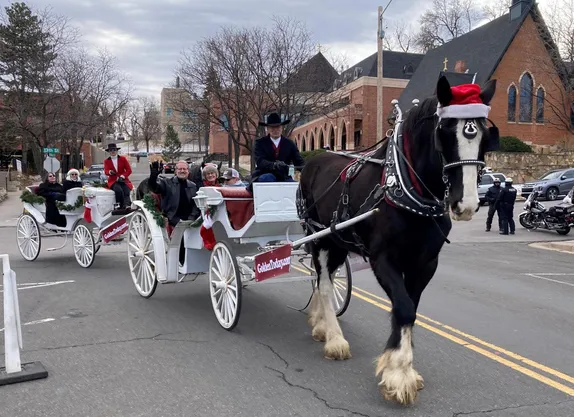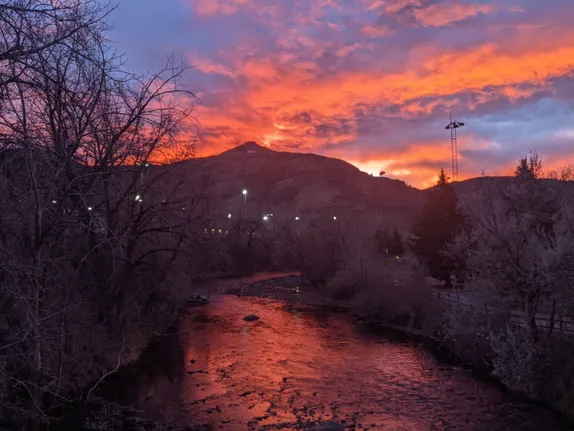92 Years Ago
The December 15, 1932 Colorado Transcript showed life in the middle of the Depression years.

- A committee of local businessmen were looking for new sources of water and identifying ways to pay for it.
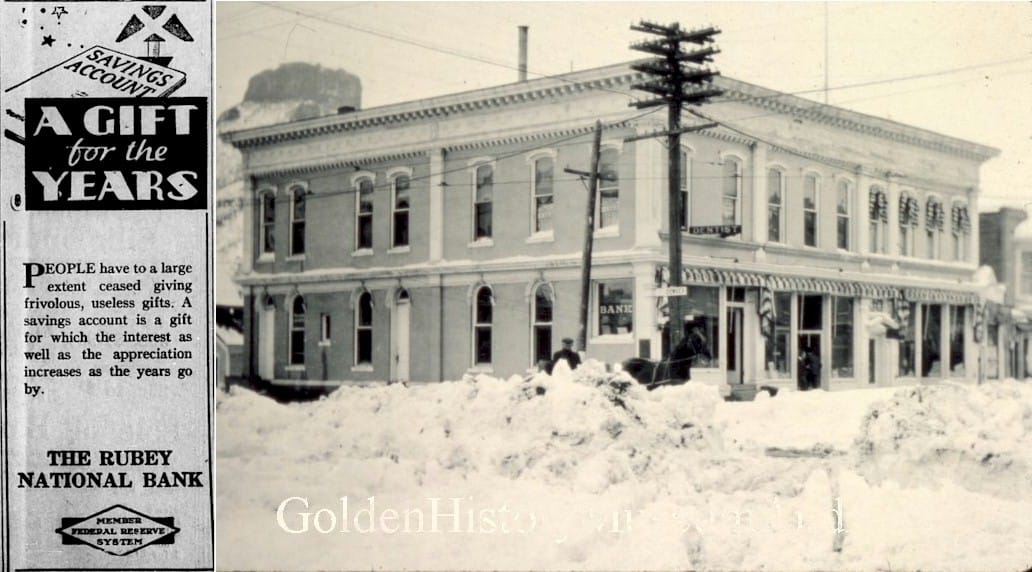
- Many local breadwinners were unemployed, and their families were hungry. Three hundred more fortunate citizens had pledged to give a regular donation to a Golden welfare fund.
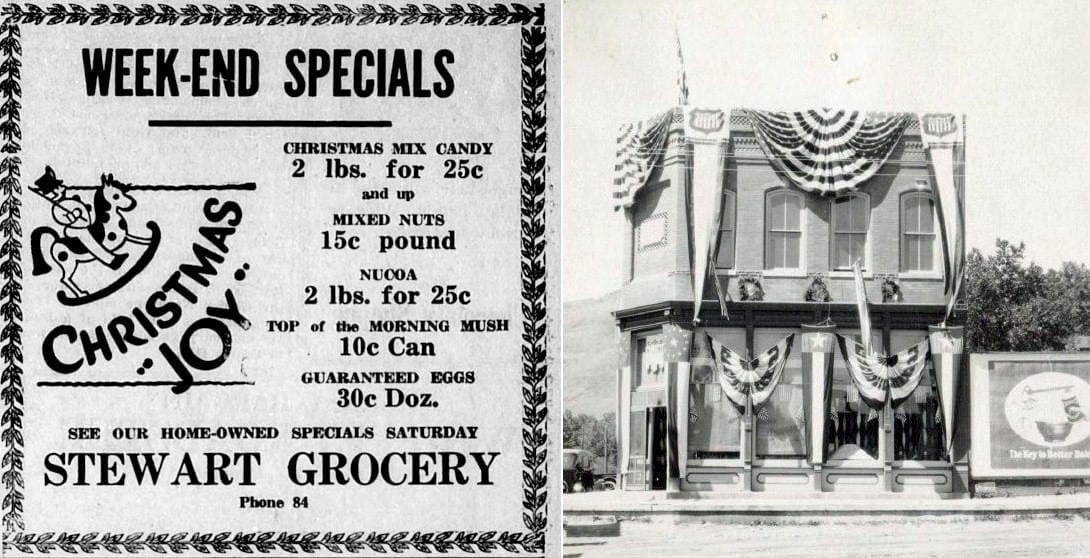
- There had been three fires in the past week, and the Fire Department was worried that there would be more. In that era, most homes and businesses were heated with coal, and careless disposal of hot ashes from the furnaces were a constant danger.
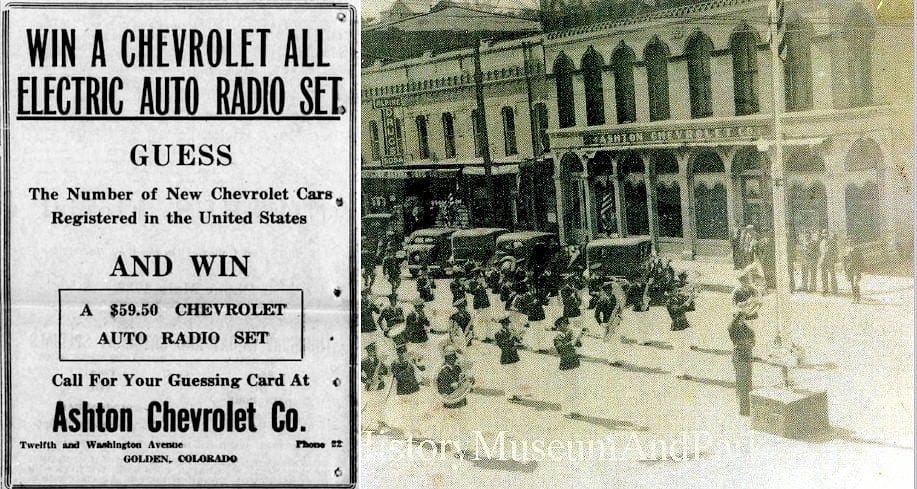
- The City had filed a $4,000 lawsuit against a man who allegedly set a blaze in the City's watershed. Forty acres of timber had been destroyed.
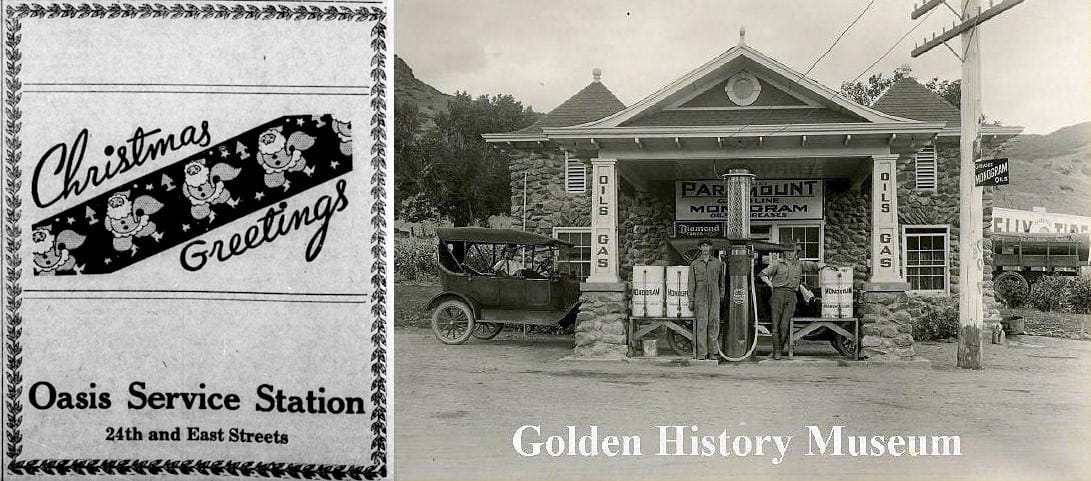
- The stores were planning to stay open evenings until Christmas.
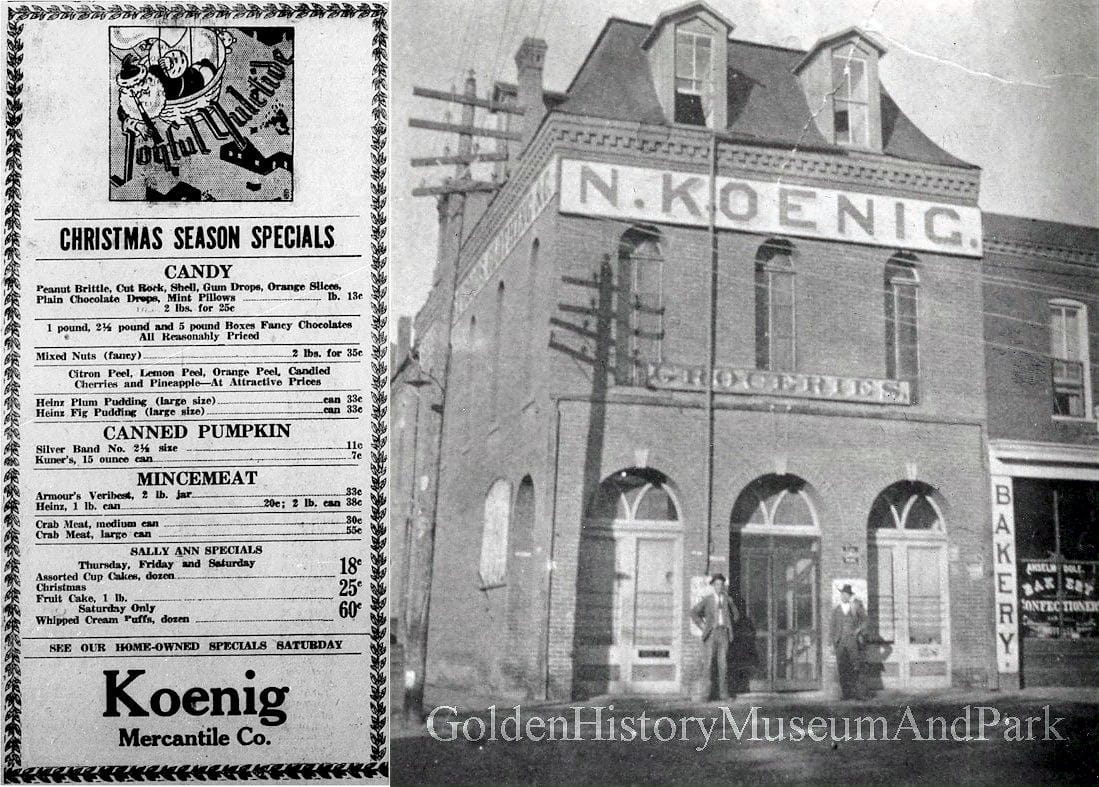
- A Golden high school teacher had been killed in a head-on automobile collision. Cars didn't have defrosters at that time, and both drivers had been trying to peer through frosted windshields.
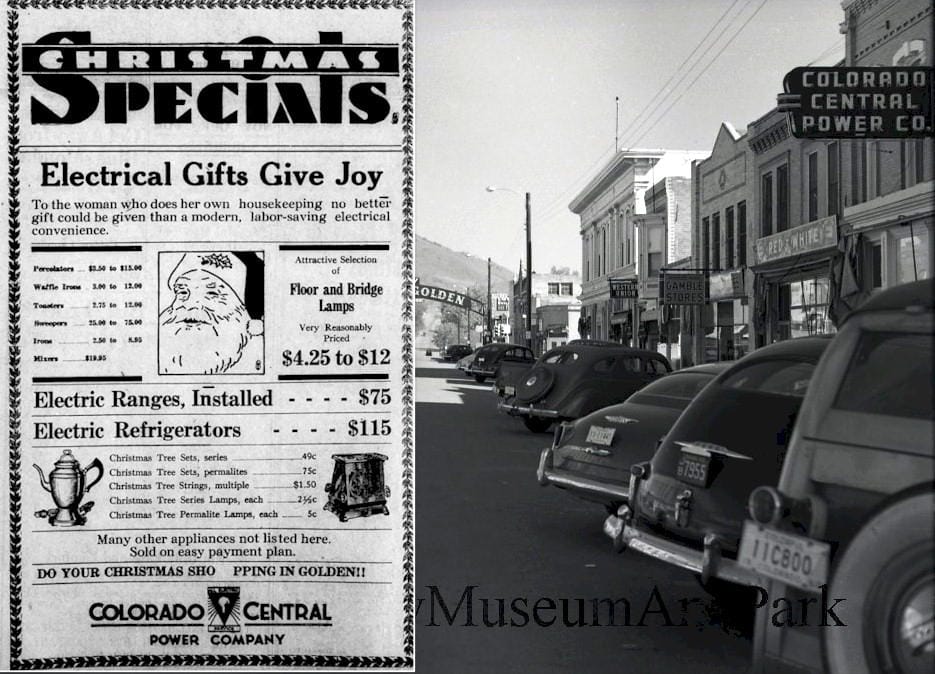
- The temperature was running at about zero. Adults were staying home, but local boys were skating on the Creek and having fun stoking a bon fire in the bottomland by the Creek.
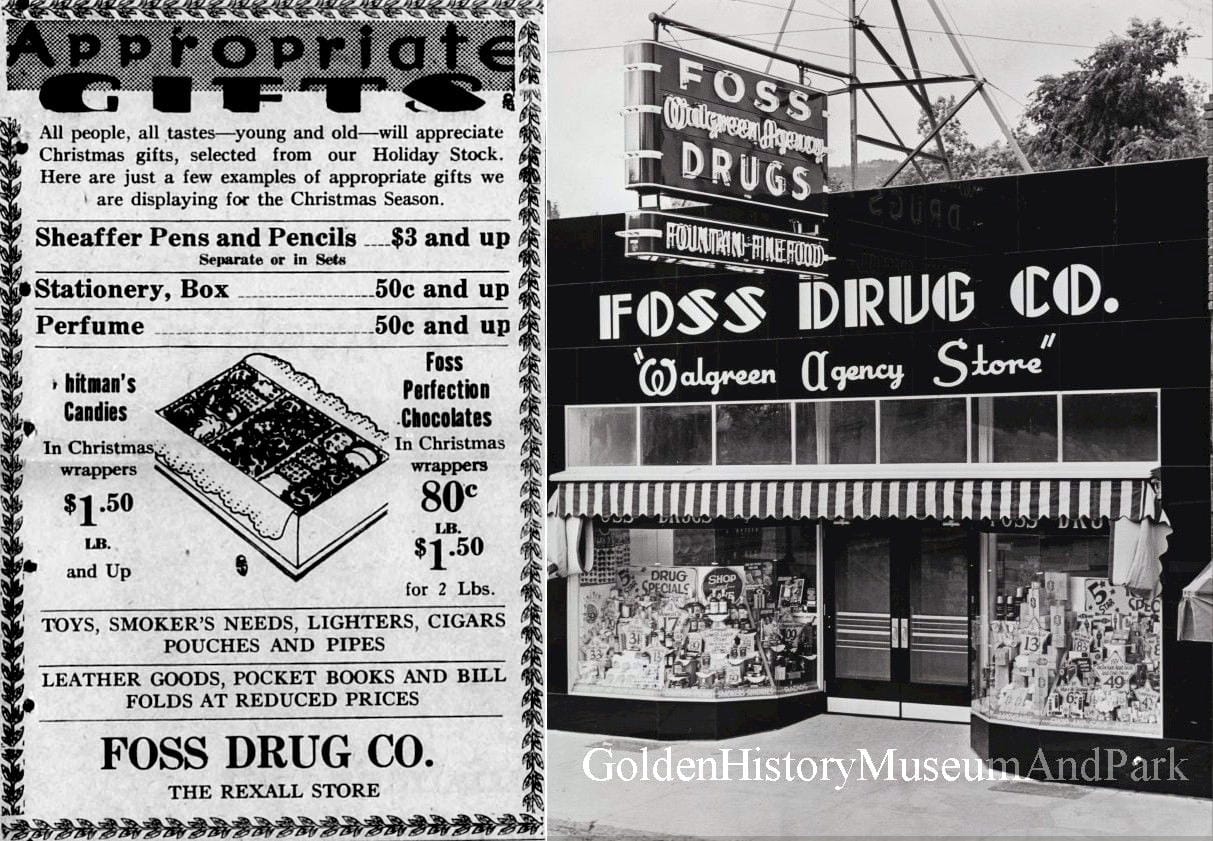
- Richard Broad was concerned about the ongoing Depression and the recent election of Franklin Roosevelt with his promised New Deal. He wrote a lengthy editorial about public finance during economic hard times. He observed that governments had raised taxes in recent years and grown used to spending more.
Revenues increased and levies were cut down and everybody prepared to be happy and prosperous and so, for a time, it seemed they were. All governing corporations in the state received more money and spent more money, while most of them found their credit so strengthened by increased values of all property within their jurisdiction that they could, and most of them did, borrow more money, which was cheerfully spent for things that seemed necessary.... We have become used to all the things provided by past taxation, and we are even expectant of more. Not only are our expectations doomed to be disappointed, but we are certain that we must curtail our public expenditures to a painful extent....It is no use to say that such reductions in expenditure cannot be made, for they must be made. The only recourse is increase of debts, and these have their limitations.... It is not what we want, nor what we have grown to believe we should have, that must ultimately fix our standards of living. In the long run it must be what we can pay for.
